"Baby," he said, "you've got too much temperament for a businessman's secretary; you're crazy and in politics or in business you will always be a dilettante."
In Paris he began his negotiations for the cartelizing of chemical plants. America was making big capital investments in the industries of the Old World. Rolling's agents carefully bought up shares. In Paris he was known as the "American Buffalo." And really he was a giant amongst the European industrialists. He went straight ahead, smashing his way forward. His field of vision was narrow: he saw only one aim before him—the concentration of the chemical industries of the whole world in his own hands.
Zoe quickly studied his character and his fighting methods. She found out his strength and his weakness. He had a poor knowledge of politics and often talked nonsense about revolution and the Bolsheviks. Without his knowing it she gradually surrounded him with necessary and useful people. She connected him up with the newspaper world and herself guided his talks. She bought up little newspaper-men to whom he did not pay any attention, but they did him greater service than the big newspaper-men since they penetrated into every hole and corner, like mosquitoes.
When she "arranged" for one of the Right deputies to make a little speech in Parliament on the "necessity of maintaining close contact with the American chemical industry in the interests of the chemical defence of France," Rolling for the first time shook hands with her as he would have done with a man friend.
"O.K., I'll take you as my secretary on a salary of twenty-seven dollars a week."
Rolling believed in Zoe's usefulness and from then on began to tell her all his business secrets.
Zoe Montrose kept in touch with a number of Russian emigres. One of them, Semyonov, was on her regular payroll. He was a chemical engineer who graduated during the war, was appointed ensign in the Russian Army, later became an officer of the White Army and in exile had performed all manner of petty commissions and finally sank as low as the sale of second-hand clothing to street women.
On Zoe's staff he headed her counter-intelligence department. He brought her Soviet newspapers and magazines and kept her up to date on everything, including gossip and rumour. He was punctual, quick-witted and not a bit fastidious.
One day Zoe showed Rolling a cutting from a Revel newspaper containing a report of an apparatus of tremendous destructive power now being built in Petrograd. Rolling smiled.
"Nonsense, that won't scare anybody... You've got a much too vivid imagination. The Bolsheviks aren't capable of building anything."
Then Zoe invited Semyonov to lunch and he told them a strange story connected with that newspaper report.
"... In 1919, in Petrograd, shortly before I got away, I met a friend in the street, a Pole by the name of Stas Tyklinski, we graduated the Technological Institute together. He had a sack on his back, his feet were bound up in pieces of carpet, and the figures chalked on his back showed that he had been standing in queues. In other words, everything as it should be. But he looked very cheerful and winked at me. I wondered what the matter was. 'I've got on the track of big money, oh, la-la, millions!' he said. 'No, not millions, hundreds of millions, gold, of course.' I naturally did not let him go but kept trying to get him to tell me about it, but he only laughed. With that we parted. A couple of weeks later I was on Vasilyevsky Island, where Tyklinski lived. I remembered his talk about millions and thought it would be a good idea to ask the millionaire for half a pound of sugar. So I went to his house. Tyklinski was lying in bed, feeling pretty bad. His chest and his hand were in bandages.
" 'Who did this to you?' I asked. "
" 'Wait a bit,' he answered, 'with the Holy Virgin's help I'll get better—I'll kill him!' "
" 'Who?' "
" 'Garin.' "
"Then he told me, hazily and rambling, of course, because he didn't want me to know the details, about an old acquaintance of his, Engineer Garin, who had proposed to Tyklinski that he prepare carbon candles for him for some apparatus of unusual destructive power. He offered Tyklinski a share in the profits to get him interested. He proposed that on the conclusion of their experiments they should fly to Sweden, patent the apparatus and then exploit it themselves.
"Tyklinski got busy making carbon pyramids. The problem was to get the maximum heat effect with the minimum volume. Garin kept the principle of the apparatus a secret but said it was so extraordinarily simple that any sort of hint would give away the secret. Tyklinski supplied him with his carbon pyramids but could not persuade Garin to show him the apparatus.
"Such mistrust infuriated Tyklinski and they often quarrelled. One day Tyklinski followed Garin to the place where he was making his experiments—a half-ruined house in one of the back streets of the Petersburg District. Tyklinski followed Garin into the house and for a long time wandered up and down staircases, through empty rooms with broken windows and at last heard a loud hissing noise, like that of escaping steam, coming from the cellar and at the same time noticed the familiar smell of burning pyramids.
"He made his way carefully into the cellar but stumbled over some broken bricks, fell noisily and, some thirty paces away, through an archway saw Garin's distorted face lit up by a smoky oil-lamp. 'Who's there, who's there?' Garin shouted wildly and at the same time a blinding ray of light, no thicker than a knitting needle, ran across the wall and cut across Tyklinski's chest and hand.
"Tyklinski regained consciousness at dawn, for a long time called for help and then crawled out of the cellar on all fours, bleeding profusely. Some passers-by picked him up and brought him home on a hand-cart. By the time he had recovered the war with Poland had begun and he had to get out of Petrograd."
This story made a tremendous impression on Zoe Mont-rose. Rolling smiled disparagingly: he believed only in the power of asphyxiating gases. Ironclads, fortresses, guns, huge armies—all these were, in his opinion, remnants of barbarism. Aeroplanes and chemicals were the only powerful weapons of war. As to some crazy apparatus from Petrograd—utter nonsense!
But Zoe was not to be put off. She sent Semyonov to Finland to collect more precise information concerning Garin. A White-guard officer engaged by Semyonov crossed the Russian frontier on skis, found Garin in Petrograd, talked with him and even proposed their working together. Garin behaved very warily. Apparently he knew that people abroad were watching him. As far as his apparatus was concerned he said that whoever owned it would be possessed of miraculous power. Experiments with a model had given brilliant results. He was only awaiting the completion of the work on the pyramidal candles.
It was a rainy Sunday evening in early spring and the lights from the windows and from countless street-lamps were reflected in the pavements of the Paris streets.
Wet motor-cars seemed to be running along black canals over an abyss of lights, wet umbrellas whirled and twisted, buffeting against each other. The rainy darkness was saturated with the musty damp of the boulevards, the smells of vegetable shops, the odour of petrol and of rich perfumes.
The rain poured down the slate roofs, the grilles of balconies and down the huge striped awnings over the cafes. The flaming advertisements of all manner of amusements flashed on and oft, whirled and flickered dully through the haze.
The little people, men and women from the shops and offices, amused themselves as best they could on Sundays. The big people, the serious businessmen, sat at home by the fireside. Sunday was the day of the mob, thrown to them to be devoured for their pleasure.
Читать дальше
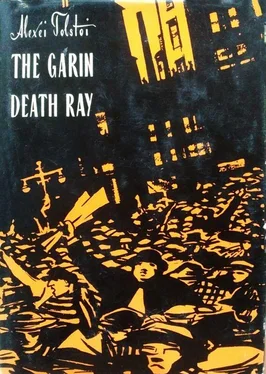
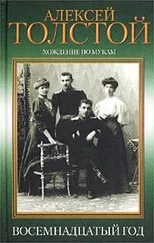

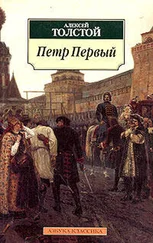
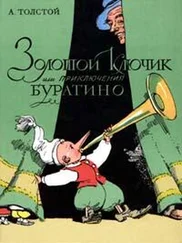
![Алексей Николаевич Толстой - Хождение по мукам [litres]](/books/26263/aleksej-nikolaevich-tolstoj-hozhdenie-po-mukam-litr-thumb.webp)
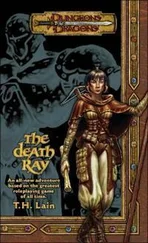

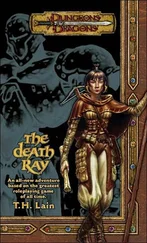


![Алексей Николаевич Толстой - Гиперболоид инженера Гарина. Аэлита [Художник Г. Зубковский]](/books/423486/aleksej-nikolaevich-tolstoj-giperboloid-inzhenera-ga-thumb.webp)
